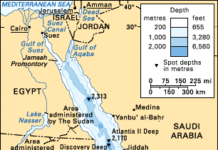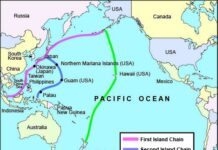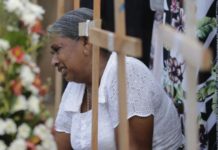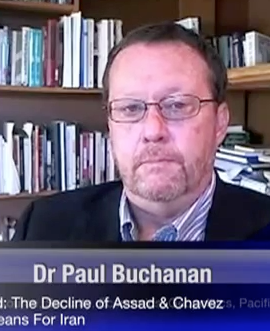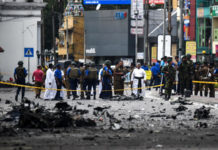Pacific Scoop PIF Coverage
Leaders launch Pacific deep sea mining regulatory tool
Rua

Cook islands Deputy Prime Minister Tom Marsters launching the regional deep seabed mining protocol. Image: Henry Yamo/PMC
Pacific Scoop:
Report – By Henry Yamo on Rarotonga
With looming exploitation of the Pacific Ocean’s mineral riches on the horizon, a regional protocol was launched today to ensure deep seabed mining was controlled in a “conserved manner”.
This is the first regional legislative and regulatory framework for deep seabed mineral exploration and exploitation, introduced at the Pacific Island Leaders Forum in the Cook Islands.
Cook Islands Deputy Prime Minister Tom Marsters launched the regional framework put together by the Secretariat of the Pacific Community (SPC) in response to the leaders’ call in the 2009 Forum.
“The completion of this important framework and its release by the Secretariat of the Pacific Community (SPC) provides a key message from us gathered for the Forum, themed ‘large Ocean island states: The Pacific challenge’,” he said.
The framework was called for by Pacific leaders as one of the key priorities of the Pacific Plan for the 2009-2012 period.
The framework seeks to provide Pacific Island nations with the tools necessary to make a decision about whether or not to engage with the emerging deep seabed mining industry.
SPC Director-General Dr Jimmie Rodgers said the legal framework was targeted at providing tools and guidelines for Pacific Island countries to develop their own national legislation in for seabed minerals.
Framework needed
“The framework is needed here in the region due to the fact that many Pacific Island countries have substantial deep sea minerals within their exclusive economic zones but lack the capacity to develop their own legislation,” he said.
“This new framework will now enable respective countries to comply with relevant standards for the deep-sea mining industry within the region.”
![]() Marsters said that because of growing commercial interest in deep sea minerals in the Pacific, nations needed to develop national policies and regulations for “sensible management”.
Marsters said that because of growing commercial interest in deep sea minerals in the Pacific, nations needed to develop national policies and regulations for “sensible management”.
He pointed out that the Cook Islands was the first country in the world to have enacted legislation, the Seabed Minerals Act which was designed to regulate future seabed mining in its exclusive economic zone.
Papua New Guinea had issued a seabed mining licence to the Canadian company Nautilus Minerals Niugini to commercially develop the seafloor for high grade massive sulphide deposits – a major source of the world’s copper, gold, zinc and silver – in its exclusive economic zone in the first such operation in the world.
The government faces mounting opposition over this project.
Other Pacific island nations – including Fiji, Federated States of Micronesia, Solomon Islands, Tonga and Vanuatu – also have or intend to issue exploration licences within their exclusive economic zones.
Sponsored companies
Nauru and Kiribati had each sponsored companies that had been granted approved programmes to work by the International Seabed Authority “within the area” (being the seabed areas outside the national jurisdiction), the first developing states to do so and the programmes were expected to take place over the next 15 years.
He said that with “exciting times” the region had shared responsibility to protect and preserve the health of the Pacific Ocean and this objective needed to continue to be at the forefront of national, regional and global agendas.
The framework was completed by the SPC Applied Geoscience and Technology Division (SOPAC) for the Pacific (ACP) African, Caribbean and Pacific states.
Henry Yamo is a post graduate student and journalist at AUT University reporting for the Pacific Media Centre and Cook Islands News.
PNG faces criticism over plan for deep sea mining ‘El Dorado’ in Pacific
This item is republished courtesy of Pacific.Scoop.co.nz.
Unless expressly stated otherwise, the findings, interpretations and conclusions expressed in this media release item do not necessarily represent the views of 36th Parallel Assessments.


